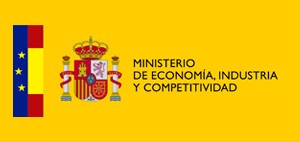
The main objective of the project is to come up with hybrid molecule-material photoanodes and photocathodes that significantly improve todays available state of the art materials. This will be achieved via a detailed knowledge of kinetics and thermodynamics of the complex chemical reactions that govern their behavior. We propose to develop and optimize each of the components necessary to achieve such objective. In particular we propose to improve the key reactions that are the oxidation of water to molecular oxygen and on the other hand on the reduction of protons to hydrogen catalyzed both by molecular transition metal complexes, as well s the molecules and materials
needed to harvest sunlight. The best catalyst obtained here will be later anchored on surfaces in order to carry out electrocatalysis. Further the best catalysts anchored on semiconductors will allow us performing the corresponding light induced water splitting reactions. For this we plan a careful development of molecular transition metal complexes capable of dealing with the inherent challenges of these reactions; these involve multiple electron and proton transfers and thus access to multiple oxidation states. In order to rationally design the molecular
nature of these catalysts we will carry out reactivity studies, kinetic analysis and isotopic labeling in order to establish the reaction mechanisms through which these reactions occur. This will allow us to determine the nature of the slow steps from the set of reactions that take place in the corresponding catalytic cycles. In this context it will also be critical the elucidation of the set of reactions that lead to nonproductive processes or reactions that lead to derailment from the catalytic cycle generating undesired or decomposition products. A set of conducting and semiconducting surfaces has been judiciously chosen to anchor the catalysts to be developed in this project. Those include graphitic type of materials as well as oxides and chalcogenides depending on the nature of the experiments that will be carried out. This development is expected to lead to highly efficient hybrid materials for photochemically driven water oxidation and proton reduction. The whole set of experiments proposed within the framework of this project is expected to produce a detailed knowledge of the molecular science related to photoinduced catalytic water oxidation and proton reductions, leading to a significant advancement of the field.
MC4WS

Ministerio de Ciencia e Innovación